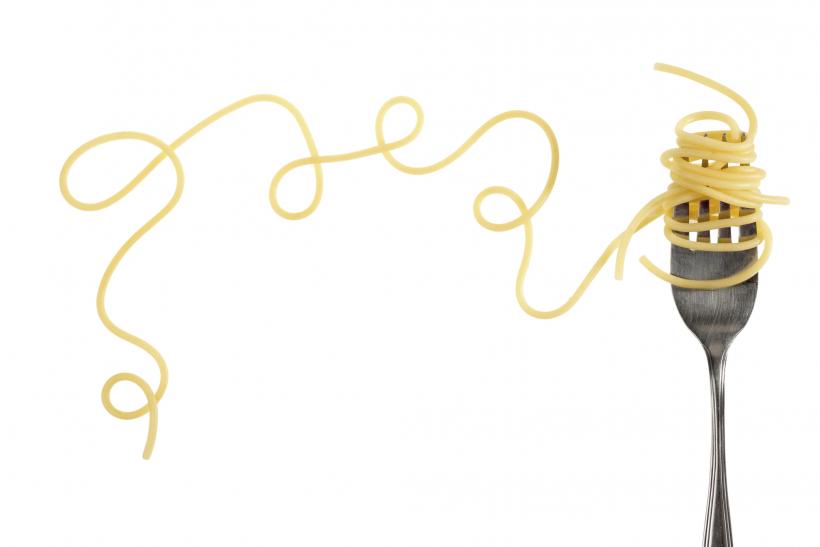
“Don’t ever eat at Olive Garden,” my dad commanded, his light blue eyes fierce and flashing against his dark coloring. “It’s an insult to your ancestry. Olive Garden is to Italian food as Taco Bell is to Mexican food.”
Maybe it was the way he said it—one quarter joking, three quarters dead serious—but this strange rule remains one of the few familial laws that I have never deigned to break. Like many Caucasian Americans, my heritage is of the European mutt variety: I’m Italian, Scandinavian, German and—thanks to an illicit affair—one part totally unknown (though wildly speculated). Yet, in the European cocktail that is my genetic makeup I am more Italian than anything else.
So here I am: a 25-year-old endless breadsticks virgin.
My parents were 99% sure they wouldn’t be able to have a baby the, ahem, classic way, but by some miracle of Ceres, I came along. Needless to say, my parents were generally over-the-moon and thusly decided to give me a name suitable for a Godfather villain: Giana Francesca Ciapponi. In America, we say: Gee-aw-nah Fran-chess-ka Cha-po-nee. My Italian professor in college literally shuddered when I told her how I pronounce my first name (in Italian, I’d say “Jahh-na,” and spell it "Gianna").
This too, provides me with some extra intense connection to my Italian heritage. Today may be #NationalPastaDay oh em gee, Twitter my rigatoni, Insta my Olive Garden, Facebook my love for pasta—but, pasta actually means something to me.
Growing up, pasta was a staple. Other dishes were seasonal; polenta, for example, only filled my belly during the winter. But pasta was something that my parents made all year round.

First, we’d combine eggs, flour and olive oil to make dough. Next, we rolled out the dough to make it super thin. Finally—and this was by far my favorite part—we’d crank the dough through the magical machine, which would produce delicate threads of angel hair. Then we’d lay it all out to dry on wax paper before cooking it for the guests. Even though the children were eventually sent off to my parents’ room to watch movies all night (this was back when having a VCR was, like, really cool), making the pasta was always the highlight of the evening for me. My dad would go on (and on . . .) about how happy the Italian relatives were knowing that his daughters were cranking pasta.
When my sister and I got older, we also helped make gnocchi. Like the pasta making, it was time consuming, but not difficult. Serving the handmade pasta to my grandparents was always a point of pride. I can’t imagine that it always tasted great, but my (American born) grandfather always described its amazing flavor in rapid Italian and thanked his “nipote belle” ("beautiful granddaughters”) for making it. Later, he would sometimes pull out a map and tell stories about our family back in Northern Italy.
As an adult, I still enjoy making pasta. I own a pasta crank, and actually use it. Sometimes, it’s a entertainment enterprise with friends. Last year, I used it to prepare a birthday dinner for a man with whom I was mega infatuated and before that, I cranked pasta to dutifully impress a former boss. Let's just say my pasta crank has seen some things.
When I see “National Pasta Day” blasted across social media, this flood of starch-soaked memories is what comes to mind...
And then I think about Olive Garden, and how many Americans believe that it's genuine Italian food. While it’s not fair for me to judge the chain, I do. And feel saddened by this notion; the majority of the country will never enjoy the taste of freshly made pasta with their families.
Having this thought about my own culture and heritage makes me pine to experience the true cuisine of other backgrounds. While I sit here, whining about Italian bastardization that is Olive Garden, how many Chinese women are rolling their eyes (or gagging) at the presence of Panda Express? Who walks past Mongolian BBQ and visibly shudders? I can’t help but wonder how these chain restaurants impact America’s conceptualization of cultures.
Generations back, immigrants populated our nation with authentic plates for us to share and enjoy. It makes sense that some would evolve into new creations—fusions!—over time, but I highly doubt that our ancestors would enjoy seeing, say, their precious pasta plates corrupted into some prefabricated concoction doused in butter and trans fat. News flash: pesto isn't supposed to be creamy. This emergence is not creative—it's disgusting. Such an evolution of cultural cuisine is not something that should bring us pride; rather, we're honoring a cheap knock-off.
Food is a big part of our lives. We eat three meals a day, and frequently socialize while doing so. The smells, tastes and even textures of certain foods can throw us into a rabbit hole of nostalgia. By patronizing restaurants like Olive Garden, Panda Express, Mongolian BBQ and Taco Bell under the vague assumption we're eating ethnic food, we're insulting the authentic cuisine and culture and weakening our own national identity.
This National Pasta Day, I encourage you to stop eating the chain-slop. We're a nation built on diversity. Let's honor our cultural complexities, rather than dine—and celebrate—cheap facsimiles.
Image: Courtesy of,






